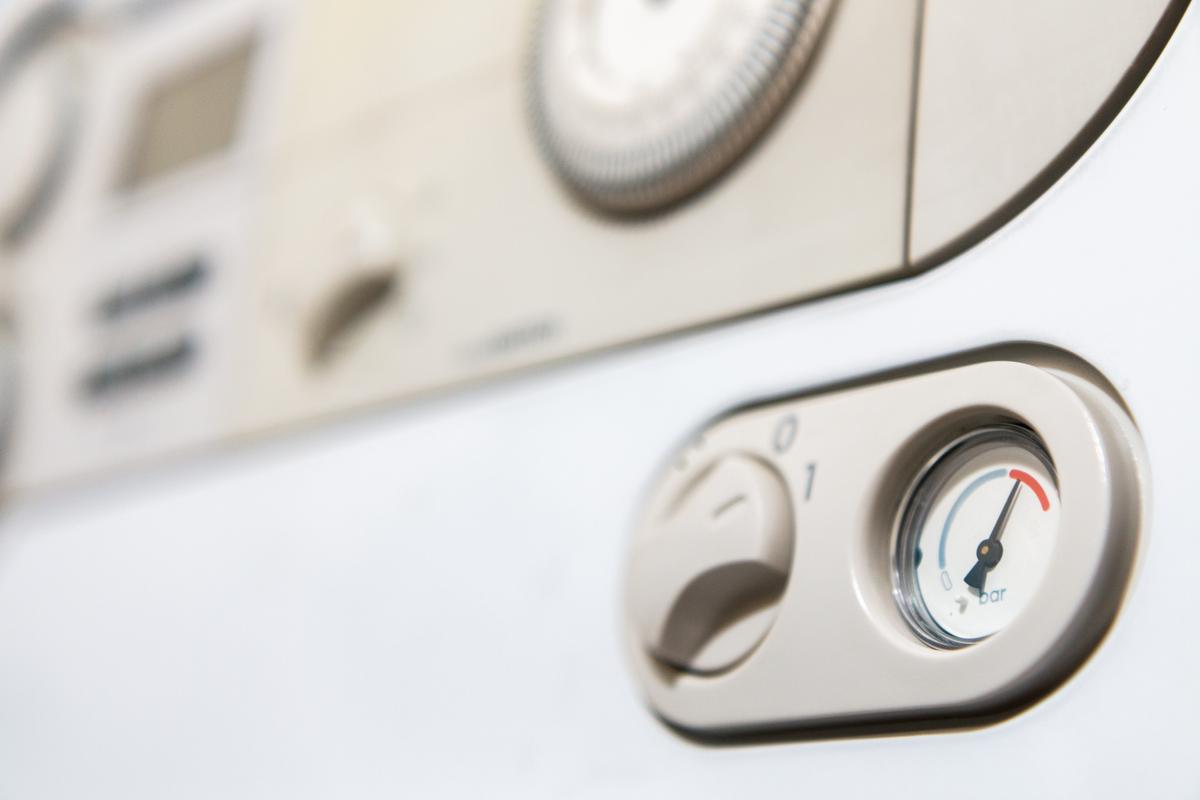Are you frequently facing the problem of your boiler’s pressure going too high? Understandably, it can be worrisome. In this article, we’ll discuss why boiler pressure is crucial, the reasons behind high boiler pressure, and most importantly, what to do if your boiler pressure is too high. With the colder months coming up, ensuring that your boiler functions properly is a top priority!
Understanding Boiler Pressure
- What is boiler pressure? Boiler pressure refers to the amount of pressure inside your boiler system, which allows the hot water to circulate throughout your radiators and taps. A pressure gauge, typically located at the front of your boiler, measures this. An ideal boiler pressure is usually around 1 to 1.5 bar when the heating system is cold.
- Why is maintaining the right pressure important? A consistent boiler pressure ensures your heating system works optimally. If the pressure in your boiler system is either too high or too low, it can lead to inefficiency, leading to higher energy bills and even potential damages.
Common Causes of High Boiler Pressure
- Why does my boiler pressure keep rising? Boiler pressure can increase due to several reasons. One common cause is having too much water in the system. If the boiler heats more water than necessary, the pressure inside the boiler increases.
- Can high water pressure lead to increased boiler pressure? Yes, water pressure can directly impact the boiler pressure. If the water pressure within the central heating system is too high, it can lead the boiler pressure to rise.
- How does the filling loop impact pressure? The filling loop, when left open, allows water to constantly flow into the heating system. This will result in high boiler pressure. Closing the filling loop ensures your boiler pressure remains consistent.
Solutions to High Boiler Pressure
- How can I reduce boiler pressure? To reduce boiler pressure, you might need to bleed the radiators. Bleeding a radiator means letting out excess air, which can lower the boiler pressure. You can also adjust the filling loop, ensuring it’s not allowing too much water into the system. Always keep an eye on the pressure gauge on your boiler to ensure it remains within the ideal range.
- Why is the expansion vessel important? The expansion vessel ensures the pressure inside your boiler system remains consistent, preventing sudden rises. If there’s a problem with the vessel and the pressure inside it, it might be the reason for the increased pressure in your boiler.
- How often should I check the pressure? You should regularly look at your boiler pressure gauge, especially during the colder months when you rely more on heating. Generally, if the pressure is between 1 and 1.5 bar when the heating system is off, it’s at an ideal level.
Tips for Maintaining Boiler Pressure
- Why is my boiler pressure too low? Low boiler pressure could be due to leaks in the system or an issue with the pressure relief valve. If the pressure is consistently low, even after increasing it, you might have a more severe issue and should consult a gas safe professional.
What happens if boiler pressure is too high?
If the boiler pressure is too high, it can lead to various issues and potentially dangerous situations. One possible consequence of high boiler pressure is an increased risk of leaks or ruptures in the system. The excessive pressure can cause weak points or joints to fail, resulting in water or steam leakage. Additionally, high pressure can strain the various components of the boiler, leading to damage or malfunction. This includes the valves, pipes, and seals, which may not be able to withstand the excessive pressure. Moreover, high boiler pressure can also cause the pressure relief valve to release excess steam and water, reducing the efficiency of the system. Ultimately, if the boiler pressure remains consistently high, it can cause severe damage, resulting in the need for costly repairs or even replacement of the entire boiler system. Therefore, it is important to monitor and maintain the boiler pressure within the recommended range.
Should I turn my boiler off if the pressure is too high?
Having a high boiler pressure could result in malfunction or potentially significant damage. To prevent such issues, it is advisable to turn off your boiler if the pressure is too high. Operating a boiler under extreme pressure can strain its components, decreasing its lifespan and leading to costly repairs or replacements. Additionally, it can also pose safety risks, such as leaks or explosions. It is therefore recommended to seek help from a professional to reduce the pressure safely and to ensure proper functioning of the boiler in the long run.
Will boiler pressure go down on its own?
Boiler pressure can fluctuate due to various factors such as heating usage or an issue within the boiler system itself. In most cases, boiler pressure will not go down on its own if it’s excessively high. This increased pressure can sometimes be a sign of a bigger problem that needs professional attention, like a fault in the pressure relief valve. Therefore, regularly monitoring boiler pressure is crucial. If the boiler pressure remains high, it’s advisable to consult a heating engineer for a diagnosis and repair to avoid potential damage to the boiler or harm to individuals nearby.
Should I turn my boiler off if the pressure is too high?
Yes, it’s recommended to turn off your boiler if the pressure is too high. An excessive boiler pressure could cause a system breakdown or even a dangerous explosion. Turning it off will prevent further damage while you call a professional to safely rectify the problem. Remember, safety should always come first.
Does bleeding radiators affect boiler pressure?
Yes, bleeding radiators can affect boiler pressure. This process removes trapped air, which can cause cold spots and inefficient operation, but it can also cause a drop in pressure within your heating system. If the pressure falls too low after bleeding, your boiler won’t operate optimally and may even turn off for safety reasons.
What if boiler pressure is too high and leaking?
If boiler pressure becomes too high and a leak occurs, it can lead to extremely hazardous situations. Not only does the leak pose a risk of causing water damage to your property, but the high pressure can also potentially lead to an explosion, causing extensive damage and potentially life-threatening harm. Therefore, it’s of utmost importance to regularly monitor and maintain your boiler’s pressure. If any sudden increase in pressure or a leak is detected, professional help should be sought immediately to rectify the issue safely.
FAQ:
Is 1.6 boiler pressure too high? A boiler pressure of 1.6 may be too high for some models or types of boilers. Typically, the standard pressure for most boilers when they’re heating is between 1 to 2 bars. Therefore, if your boiler’s pressure gauge is showing 1.6 when it’s not heating up, this could potentially indicate an issue that needs addressing by a professional.
Is 1.8 boiler pressure too high? A boiler pressure of 1.8 bar is not excessively high, but it is slightly above the ideal range. The standard pressure for a residential boiler system typically hovers between 1.0 and 1.5 bar. Pressure above this range may indicate a fault in the system or an issue that needs immediate attention.
Is 1.5 bar boiler pressure too high? No, 1.5 bar is not too high for boiler pressure. The ideal pressure for most boilers should be between 1 to 1.5 bar when the system is cold. However, 1.5 bar could be considered too high if the boiler pressure keeps rising above this level, which might warrant a check from a heating engineer.
Is 2.5 boiler pressure too high? A boiler pressure of 2.5 may be too high and could potentially cause issues. The ideal boiler pressure should be between 1 and 1.5 bars when the system is cool. If the pressure exceeds 2 bars, it’s generally a sign of too much water in the system or a faulty pressure release valve, requiring professional attention.
In Conclusion:
- Boiler pressure is vital for the efficient working of your heating system.
- Common causes of high boiler pressure include too much water in the system and a faulty filling loop.
- Regularly check your boiler pressure to ensure it remains at the ideal level.
- If boiler pressure keeps rising or dropping, it might be time to consult a professional.
- Regular maintenance ensures your boiler’s longevity and efficient performance.
Stay warm and stay safe by keeping an eye on the boiler pressure!


